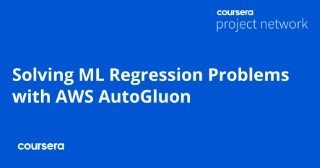Natural Language Processing in Microsoft Azure
Learn advanced natural language processing techniques with Microsoft Azure’s Text Analytics service. Gain insights from sentiment analysis, key phrase extraction, and language detection. Prepare for the AI-900 certification exam and explore Azure’s AI offerings. Suitable for beginners with basic computer literacy and English proficiency.
Natural language processing supports applications that can see, hear, speak with, and understand users. Using text analytics, translation, and language understanding services, Microsoft Azure makes it easy to build applications that support natural language.
In this course, you will learn how to use the Text Analytics service for advanced natural language processing of raw text for sentiment analysis, key phrase extraction, named entity recognition, and language detection. You will learn how to recognize and synthesize speech by using Azure Cognitive Services. You will gain an understanding of how automated translation capabilities in an AI solution enable closer collaboration by removing language barriers. You will be introduced to the Language Understanding service, and shown how to create applications that understand language.
This course will help you prepare for Exam AI-900: Microsoft Azure AI Fundamentals. This is the fourth course in a five-course program that prepares you to take the AI-900 certification exam. This course teaches you the core concepts and skills that are assessed in the AI fundamentals exam domains.
This beginner course is suitable for IT personnel who are just beginning to work with Microsoft Azure and want to learn about Microsoft Azure offerings and get hands-on experience with the product. Microsoft Azure AI Fundamentals can be used to prepare for other Azure role-based certifications like Microsoft Azure Data Scientist Associate or Microsoft Azure AI Engineer Associate, but it is not a prerequisite for any of them.
This course is intended for candidates with both technical and non-technical backgrounds. Data science and software engineering experience is not required; however, some general programming knowledge or experience would be beneficial. To be successful in this course, you need to have basic computer literacy and proficiency in the English language. You should be familiar with basic computing concepts and terminology, general technology concepts, including machine learning and artificial intelligence concepts.
User Reviews
Be the first to review “Natural Language Processing in Microsoft Azure”
You must be logged in to post a review.






There are no reviews yet.